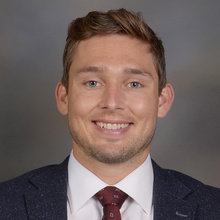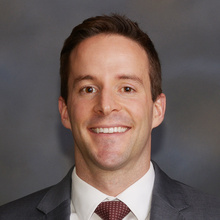A new University of Iowa Health Care research pilot program will fund projects addressing food insecurity among pregnant patients, improving cancer care navigation for patients from rural Iowa, and identifying and treating preventable causes of blindness among underserved community members.
This pilot funding program was established to address health disparities within the local community and among patients at UI Hospitals & Clinics. Investigators for the selected yearlong projects will each receive $100,000 in funding from the Office of Health Parity and the Office of the Vice President of Medical Affairs.
Project titles and descriptions:
Understanding and effectively addressing upstream food insecurity for the UI obstetrical population

At nearly twice the reported rate for adult Iowans, 22% of UI patients reported food insecurity during their high-risk pregnancy. Patients receiving Medicaid, who have diabetes, or who are single, Black, or Hispanic are disproportionately burdened by food insecurity.
This means these groups are also at a greater risk for downstream, adverse health quality and outcomes related to food insecurity.
The research team, led by Michael Haugsdal, MD, clinical assistant professor of obstetrics and gynecology, aims to identify the greatest barriers to accessing food resources and improve patients’ access to these resources.
The group also plans to partner with Hawkeye Area Community Action Program (HACAP)—a local nonprofit that helps community members gain access to healthy food options—to pilot an on-site, shelf-stable, food resource to respond to the acute food needs of patients receiving obstetrical care at UI Hospitals & Clinics.
Improving rural cancer care through collaborative patient navigation

Rural cancer patients treated at urban, tertiary hospitals—such as UI Hospitals & Clinics—experience additional challenges to receiving care, including the time and financial burden needed for travel as well as challenges to care coordination.
Navigation is a patient-centered intervention that uses trained staff to identify these patient barriers—which also include cultural, logistical, and educational obstacles to health care—and then mitigate these barriers.
This research group, led by Ingrid Lizarraga, MBBS, UI breast surgical oncologist, will create a rural navigation package to improve access to cancer care at Holden Comprehensive Cancer Center. The group will identify navigation contacts at hospitals in Dubuque, Des Moines, Jefferson, Wapello, and Black Hawk counties. These counties were selected based on volume of referrals using Iowa Cancer Registry data.
Local stakeholders will help determine which established, evidence-based navigation strategies would be most effective for their local patients. Holden patient navigators will then work with their liaison at participating hospitals to implement these navigation strategies and track its effectiveness at helping patients smoothly access cancer care.
Identifying and treating preventable blindness in a largely uninsured population through a community-based free clinic

A team in the Department of Ophthalmology plans to identify and treat preventable blindness in a primarily uninsured, low socioeconomic status patient population seen through the Iowa City Free Medical and Dental Clinic (FMC), and to demonstrate the impact of these interventions on visual function and quality of life for at-risk patients.
This project, proposed by Sean Rodriguez, MD, and co-led with Zachary Mortensen, MD, MBA, both resident physicians in the Department of Ophthalmology and Visual Sciences, plans to first identify patients who receive care in the Iowa City FMC with treatable causes of vision loss or preventable blindness (primarily cataract and diabetic retinopathy).
This will involve visual assessments of impairment through baseline eye examinations and performing pre-treatment surveys about visual function and quality of life.

Although treatments for visually significant cataracts and high-risk diabetic retinopathy are well-established, the Iowa City FMC currently has limited available mechanisms to provide treatments. Through this yearlong project, investigators plan to organize a free panretinal photocoagulation (PRP) sessions for diabetics meeting treatment criteria as well as a free cataract surgery day at the UI Ambulatory Surgery Center. This clinic will be staffed by volunteer ophthalmology faculty and residents, surgical nurses, technicians, and pharmacists.
The group plans to use the developed screening and treatment pathways as a blueprint for expanding FMC capacity to treat other eye conditions in the future.